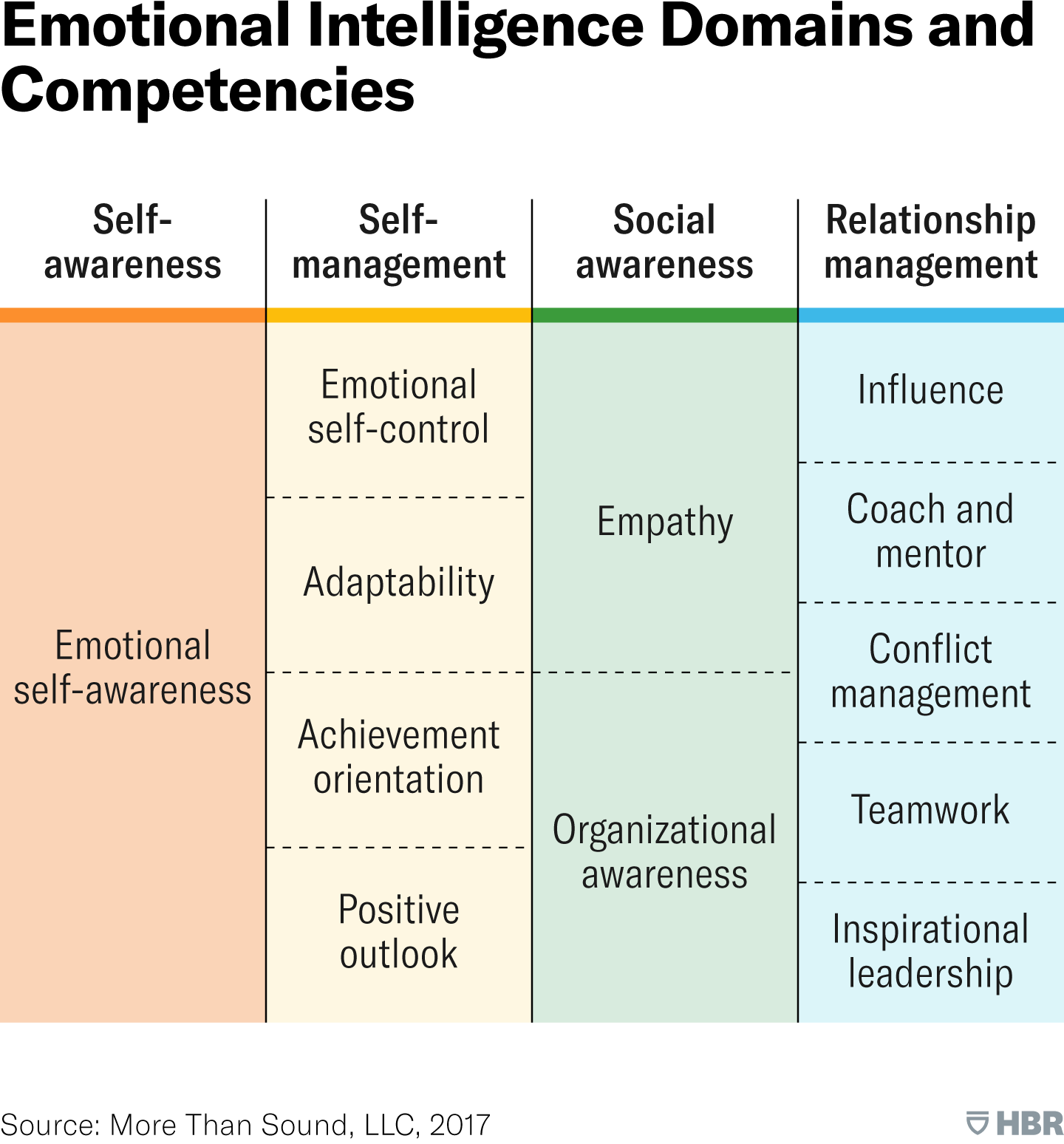Emotional Intelligence is the key to personal and professional growth as an EMS leader. Many have obtained their position through IQ, which is insufficient for growth as a leader of an organization.
Richard Boyatzis, professor emeritus of Case Western Reserve University, and Daniel Goleman have written extensively on this topic for over 35 years, and have published research on these four domains of EI.

🔗 HBR article: Emotional Intelligence Has 12 Elements. Which Do You Need to Work On? https://hbr.org/2017/02/emotional-intelligence-has-12-elements-which-do-you-need-to-work-on
Here are five methods EMS Leaders can use to improve their EQ:
- Self-awareness and Reflection:
- Recognizing one's own emotions is the foundation of emotional intelligence. By dedicating time to introspect, leaders can better understand their emotional triggers, strengths, and areas of learning & growth.
- Journaling can help in capturing these reflections. Regular mindfulness practices, like meditation, can also help leaders stay attuned to their emotional state and recognize shifts in their mood or reactions.
- Tools such as the Emotional and Social Competency Inventory, or ESCI 360, a commercially available assessment tool developed with the Korn Ferry Hay Group gauges the 12 EI competencies, which rely on how others rate observable behaviors. - Seek Feedback and Listen Actively:
- Constructive feedback can provide invaluable insights into one's behavior, especially in emotionally charged situations. By seeking feedback, leaders open themselves to external perspectives that can spotlight their blind spots. Additionally, active listening is essential. This involves giving complete attention to the speaker, understanding the emotions behind their words, and resisting the urge to formulate a response while they're still speaking. This deep level of understanding fosters trust and mutual respect.
🔗 We propose methods of conscious listening in our EMS Communications Mini-Course training program. - Practice Empathy:
- Empathy goes beyond just understanding another person's feelings; it's about sharing them. Leaders should make an intentional effort to see situations from others' viewpoints. This not only improves interpersonal relationships but also enhances decision-making by considering the emotional impact of decisions on others.
🔗 Watch this famous TED Talk by Brené Brown – The Power of Vulnerability - Manage Stress and Respond Thoughtfully:
- EMS providers often work in high-pressure environments, their leaders are often placing an immense amount of trust in their people and they too will feel that added stress. Using techniques, such as deep breathing (or box breathing), meditation, or regular physical exercise, can help mitigate the experiences of stress. When confronted with challenging situations, it's crucial for leaders to pause and reflect on their emotional state rather than reacting impulsively. This thoughtful response can prevent misunderstandings and conflicts.
🔗 Read more in our article "EMS self-care for supervisors: Manage stress and avoid burnout. Who's looking out for the supervisor?" on EMS1 by Wendy Lund & Robbie MacCue - Engage in Continuous Learning:
- Emotional intelligence, like any other skill, benefits from continuous learning. Leaders can explore books dedicated to the subject, attend workshops, or even take online courses. Engaging with diverse sources of knowledge can offer new techniques, insights, and perspectives that can be integrated into one's leadership journey.
🔗 The EMS Leadership Academy has courses and programs designed to support EMS Leaders in their own development and the growth of their organizations.
Remember, we are all on a spectrum of growth, from Novice to Mastery. Incorporating these strategies into daily routines and leadership practices can significantly enhance an EMS leader's emotional intelligence, paving the way for more effective and empathetic leadership.



